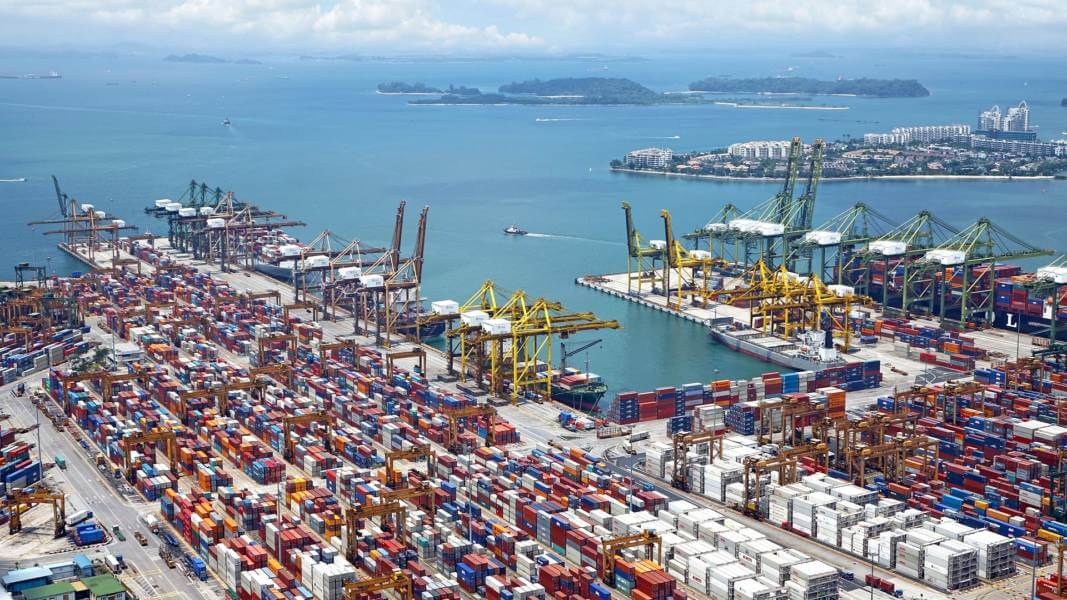Trade is not a new term. It has been taking place for centuries, either through the trading blocs or the trading routes! In the last few centuries, the boost in globalization and economic interdependence between nations has played a major role in building stronger and wider international trade.
International trade has also expanded due to lower immigration barriers, advanced communication systems and economic liberalization. It is a vital component of the global economy.
International trade is based on the demand-supply chain. A country that has a surplus of products may supply another where the demand is high. This is why international trade takes place. This type of import/export trade on the global market enables countries to produce specialized merchandise giving them a competitive advantage. Countries that have no means to produce such merchandise may import and use them. Export import finance has played a huge role in helping the supply chain to thrive and grow.
International trade cannot take place without import and export activities. They are akin to two sides of the same coin.
Expenses involved in the import/export business
It is possible to start an import/export business with a low investment. However, potential exporters and importers must be aware of the associated costs. The cost of business increases as the business expands. Managing them the right way will help increase profits.
Startup expenses
Starting a business may require little cost if it is home-based. Normally, this type of business needs some start-up capital for:
- Deposit to rent a space
- Furniture
- Equipment and essential machinery
- Stationery and office supplies
- Utilities
- Initial promotions
- Internet services
- Initial setup and legal fees
Deposits and fees
- Registration fees
- Legal fees
- Agent fees
- VAT/duties
- Permits and licences
- Port and inspection fees
Operating costs
- Warehousing
- Shipping
- Salaries of staff
- Marketing, promotional and branding activities
- Utilities, water, electricity, phone and internet
- Distribution agent or overseas sales
Other costs
- Custom duties
- Insurance
- Fines and taxes
- Transportation
- Fuel
- Custom broker fees
- Travel expenses
- Customization of products
- Distributor markups
- Fluctuations in the exchange rate
- Shipment missing or delays
- UPC barcodes, labelling, and packaging
- Travel expenses
How to save money on your import/export business?
Reducing costs can boost profits. The same rule applies to the import/export business. By reducing expenses, businesses can implement growth-promoting activities like investing in a new product category or exploring a new market while staying competitive.
Here are a few tips which can help exporters and importers manage their businesses while reducing costs.
Compare freight forwarders and shipping services –Don’t always choose the cheapest option
Always compare the costs and services offered by shipping companies and freight forwarders. You should compare the shipping timeline, impact of delays on business and how they will be taken care of and shipment tracking procedure. Offering a tracking feature will help manage expenses. It will help streamline processes and control en routing and overheads. Additionally, choose a reliable shipping partner who has a good track record and the ability to take care of missed or delayed shipments.
Your business may suffer losses if you choose a cheap shipping service that will take longer than expected to deliver the goods. Always choose a partner with the right strategies rather than the cheapest services.
Research tax-free schemes and subsidies
The product you are exporting or importing may qualify for a subsidy scheme. Many governments offer duty relief or reduced taxes to exporters and importers with a license to deal in specific merchandise. For exporters and importers, this can mean large savings in the overall cost.
Free-trade agreements, licenses, and fines
The greatest losses an export/import business may face are through fines. If you are trading in a specific commodity or one restricted by your government, then make sure you have the right license to continue the trade. Trading without needed permits will lead to fines and losses, apart from affecting your reputation in the market and causing delays. You may even face legal action.
As an importer, buying merchandise from countries with free-trade agreements will save on duty charges. This may deliver significant savings in over the period of the contract.
Custom charges and import duties
Take care of one-time charges. These include registration fees and deposits along with some other added costs. Each of these will reduce your profit margin. When you are trading internationally you will have to also consider taxes, duties, fees and charges. Check if you can avoid or reduce them. Explore how to avoid inspection and warehousing fees by doing the inspection and certification yourself. Use an internationally recognised commodity code system with proper tariff numbers to avoid any additional fees due to improperly labelled merchandise.
Use an online portal for high volume payments
Businesses can now make fast, low-cost reliable payments to international clients using online remittance firms. These firms enable the international trade business pay in foreign currencies. By settling multiple beneficiaries, businesses can take care of corporate clients with ease.
Summary
You need to be smart in the import/export business. Avoiding losses and unnecessary spending is important. Make sure your business remains afloat in this volatile marketplace.








